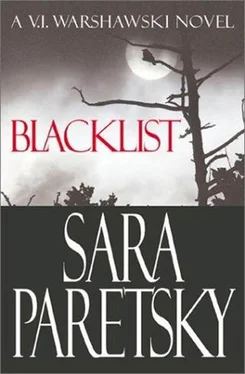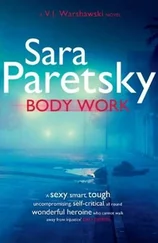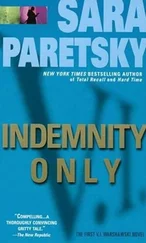“So while they were having the time of their lives at that party, I went through Calvin’s desk-I knew his study was the one room that people didn’t go to fuck in. Sacred ground, not like even my own bedroom where I found Armand with Peter Felitti’s wife! I was hoping there’d be one word in Calvin’s old diaries about me, one thought that he’d paid attention to my conception or my birth!”
Bayard was panting as though he’d been running hard. “When Trina was born, I made a conscious effort to write it up. It was a big moment in my life, I should think in any father’s life, his first child’s birth, seeing that perfect little creature you made happen. But not Calvin. And I never knew whether it was because he wasn’t my father, or because he was so damned wound up in his own importance that I didn’t count for crap. Everyone worshiped him-you yourself do. Well, I wanted a father, not a god who expected to be on that pedestal.”
My stomach tightened at the accusation, but I kept my voice steady. “Did your mother have affairs? It doesn’t seem in character, although I didn’t know her when she was twenty.”
“That’s what I would have thought, too,” he said savagely. “And of course it’s what she said when I put it to her.”
“So what did you tell Taverner when you met? Did you ask him who your father really was, or just about the letter from Ms. Drummond?”
He began picking at the rubber edge to one of my legal pads. “It-I decided to explore other viewpoints than Calvin and Renee’s and served as an intern in Senator Tower’s office. That was when I really met Olin, got to know him. He was astonished, of course, to see a Bayard in that office, but he and Tower were good friends. Olin was a different kind of person than Calvin, not as easygoing, not expecting people to fall down and worship him. I liked him, and we got to be friends.”
“And there was the added benefit that knowing him made your parents see red-so to speak.”
“As if that isn’t what they always saw.” He ripped a length of rubber from the pad. Now the pages would all fall off, but that was a small price for the information I was getting.
“So you came to tell him about the letter from Ms. Drummond. Did he know about it?”
“He said he was surprised old Mrs. Drummond cared, that her views on Negroes were as antiquated as she was-she hung on until 1984, you know, running Larchmont like it had been when she moved into it, except she installed electricity, talking about the coloreds knowing their place and hiring four Japanese gardeners to keep the pond and gardens in order. Mrs. Drummond was Olin’s aunt, but even though he made fun of her she intimidated him, too.”
“What did her views on blacks have to do with your father?” I tried staying on the main point, but I had trouble figuring out what it was. “Calvin had been stealing from Augustus Llewellyn, apparently. Olin never spelled it out, he said he wasn’t there to stir up old wounds, but as I’d seen his aunt’s letter, I should know that Calvin had been-“
“But that doesn’t make sense,” I interjected. “Your father lent Llewellyn the money to start T-Square.”
He stared at me. “Did Renee tell you that?”
“Yes. And they confirmed it over at Llewellyn enterprises.”
“Calvin did something with Llewellyn’s finances,” Bayard insisted. “Olin told me, and he wasn’t a liar.”
“So what else did he tell you?” I demanded. “Why did he hint around about your father’s financial deals but never spell them out?”
“Because he’d made a promise, and he kept his word.”
“Be your age, Bayard. Have you ever even read any of the transcripts of the hearings Taverner masterminded? He reveled in unveiling people’s secrets. He kept quiet because-“
“I know you share Calvin’s views,” he shouted me down. “You can’t believe Taverner had a sense of honor, because the Communists you admire so much didn’t believe in the concept.”
“You’ve said about twenty actionable things in the last five minutes,
Bayard.” My own temper was rising. “But let’s keep to the real questions here. Isn’t it more likely Taverner kept his secrets to himself because he didn’t want his own secrets coming out?”
“If you mean his homosexuality, he didn’t hide that from me. It didn’t affect my respect for him,” he said stiffly.
“It doesn’t matter now the way it did in the fifties,” I agreed. “So what secret of his own did Taverner care so much about that he kept one of your father’s for four decades?”
“You are completely wrong about Olin’s character because you only believe what you read in the liberal media.”
“This line about the liberal media is the same kind of garbage as `lies of the capitalist press’ that the old fellow travelers reiterated,” I snapped, exasperated. “Both of them are slogans to keep you from thinking about what you don’t want to know. But have it your way: Taverner pledged his life, his fortune and his sacred honor not to tell people your father had been stealing from Augustus Llewellyn. Now, tell me: How did you know Taverner had this secret file in his desk, the one you broke into his place to find?”
He scowled. “It was a desk that had belonged to one of the early Supreme Court justices, William Johnson, and it was Olin’s most prized possession. He had it in his Washington home, not his office, and he moved it back to Chicago with him. A couple of times when I was visiting him and we were talking about-about Calvin and Renee, he tapped the desktop and said, `It’s all in there, my boy, and when I’m gone you can learn the whole sorry story.”’
“So when you learned he was dead, you wanted to get to the whole sorry story before the lawyers did,” I suggested, “just in case Julius Arnoff thought the papers ought to go to your mother or even be suppressed, instead of including them with what he turned over to the heirs.”
“It would be like Julius,” he said bitterly. “Damned little busybody, trotting around like Calvin’s lapdog, wagging his tail anytime the big man threw him a biscuit.”
“And when you got there, and went to all that trouble busting open the patio door, what did you think when you saw the papers were already gone?” “I figured the Mexican who looked after him stole them to see what he could get for them.”
I thought of Domingo Rivas, with his quiet dignity in looking after his “gentlemen,” and felt another spurt of anger. “So did you talk to Mr. Rivas?” “I told him I’d pay him a thousand dollars for anything he removed from Olin’s desk, but he claimed he knew nothing about those papers.”
“He has his own code of honor, and I doubt it includes stealing from his patients. You know, of course, that if he’d wanted to take something of Taverner’s, he would have known where the keys were-he wouldn’t have had to follow your sterling example and break any locks.”
He flushed. “Who else could have them-unless that black reporter filched them. Because I sure as hell don’t have them.”
“Oh, it could be a black reporter or a Mexican orderly, but not a rich white guy?” I was thoroughly angry by now. “That’s the question, isn’t it: If you don’t have them, and Marcus Whitby didn’t take them, where are Olin Taverner’s secret documents?”
Tangle,Tangle, Lives Entangled
The reporter must have taken them,” Edwards insisted. “Not because he was black, because he was a reporter. Just because I’m against affirmative action doesn’t mean I’m a racist, in fact, it’s quite the opposite. Affirmative-“
“Yes, I’ve read all those position papers,” I interrupted. “I understand how insulting it is for African-Americans if whites give up any privileges. Marcus Whitby didn’t take Taverner’s papers. When Whitby left, Taverner locked the documents back in his drawer: Mr. Rivas saw him do so.”
Читать дальше












